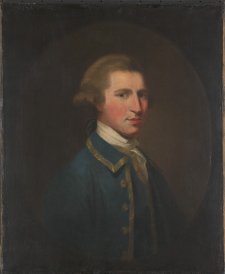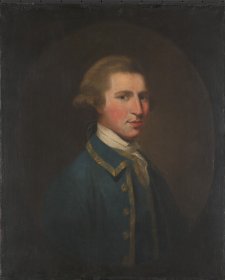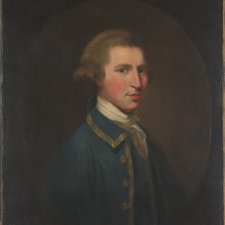- About us
- Support the Gallery
- Venue hire
- Publications
- Research library
- Organisation chart
- Employment
- Contact us
- Make a booking
- Onsite programs
- Online programs
- School visit information
- Learning resources
- Little Darlings
- Professional learning
George Barrington (1755-1804) was the best-known 'gentleman thief' of late eighteenth-century London. Comparatively well-educated in his native Ireland, Barrington fled from his school after being caught stealing, and stabbing another boy. He joined a travelling theatre troupe in 1771, and learned both acting and pickpocketing techniques from his mentor, John Price. Moving to England in 1773, he began his thieving career in London's theatres and pleasure parks. Although he was arrested fourteen times, his air of gentility conduced to his repeated acquittal, and he served little time in gaol. In 1790, however, he was transported for stealing a watch at a racetrack. About a year after he arrived in the New South Wales, having worked in the police watch at the Government Stores, he received a conditional pardon. In 1796 he was made chief constable at Parramatta; by the time he died he had acquired a house and some property along the Hawkesbury. Barrington was credited with the authorship of 'An Impartial and Circumstantial Narrative of the Present State of Botany Bay, in New South Wales', but the work, according to historian Suzanne Rickard, was a 'plagiarised pastiche', cobbled together by another and published under Barrington's famous name. Nor is there evidence that Barrington wrote any of the many other accounts of the colony with which he was credited, including the famous lines 'true patriots all, for . . . we left our country for our country's good.' He died, purportedly lunatic, thirteen years after arriving in the colony.
Collection: National Portrait Gallery
Purchased 2016



On one level The Companion talks about the most famous and frontline Australians, but on another it tells us about ourselves.



Grace Carroll discusses the portrait of the late-eighteenth century gentleman pickpocket George Barrington.



Visit us, learn with us, support us or work with us! Here’s a range of information about planning your visit, our history and more!